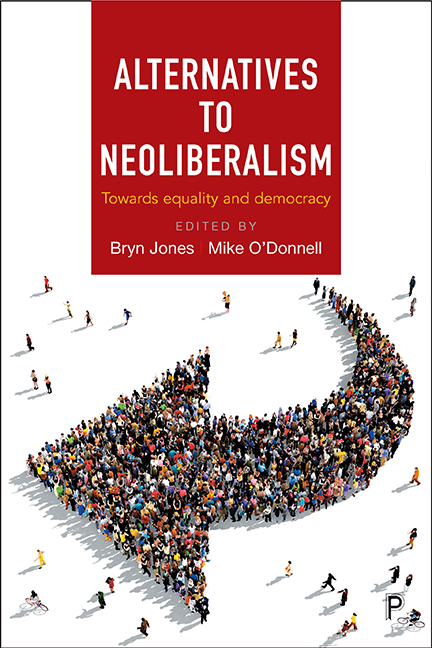Book contents
- Frontmatter
- Dedication
- Contents
- List of figures, tables and boxes
- List of abbreviations
- Notes on contributors
- Acknowledgements
- Foreword
- Editors’ preface
- Introduction: The open-market society and its opponents: an overview
- Part One Alternative paradigms and perspectives
- Part Two Reform within economic and governance restraints: pushing the boundaries
- Part Three Economic and political democracy: restoring the market-civil society balance
- Conclusion: A Brexit from neoliberalism?
- Index
eleven - Rethinking public ownership as economic democracy
Published online by Cambridge University Press: 05 April 2022
- Frontmatter
- Dedication
- Contents
- List of figures, tables and boxes
- List of abbreviations
- Notes on contributors
- Acknowledgements
- Foreword
- Editors’ preface
- Introduction: The open-market society and its opponents: an overview
- Part One Alternative paradigms and perspectives
- Part Two Reform within economic and governance restraints: pushing the boundaries
- Part Three Economic and political democracy: restoring the market-civil society balance
- Conclusion: A Brexit from neoliberalism?
- Index
Summary
Introduction
The 20th century was dominated by two opposing utopias. One was a vision of top-down state ownership that could overthrow capitalism and deliver the fruits of their labour to the masses; the other was Hayek's market-driven nirvana of the property owning democracy that could liberate the individual, creativity and enterprise. Ultimately, both visions ushered in centralising dystopias in the form of the totalitarian command economies of the Soviet Union and China on the one hand, and a corporate-driven, elite, Western project of globalisation, neoliberalism and privatisation on the other.
As the 21st century advances we seem to have the worst of all worlds. The messy confluence of these two dystopias has produced a global economy characterised by growing inequality, deepening uneven development and accelerating environmental destruction. A slightly revised and reheated form of neoliberalism has emerged from the ashes of the financial crisis in a regime of austerity and welfare retrenchment. Meanwhile, the state as a critical social actor is re-emerging – if indeed it ever went away – in different and often regressive guises to paper over the contradictions and ‘market failures’ of deregulated capitalism. The nationalisation of much of the banking sector in the wake of the financial crisis was enacted by the same political elites who had been telling us for years to learn to love globalisation, the market and private enterprise. At the same time sovereign wealth funds – whether they originate from Norwegian or Middle Eastern oil riches or East Asian developmental states – are increasingly important in shaping financial markets.
The contemporary political economy seems increasingly to be characterised by a state project around security and restriction of individual rights and freedoms on the one hand, alongside a more rapacious accumulation by dispossession, to use David Harvey's phrase (2003), of our remaining common resources and assets on behalf of financial and corporate elites. In this chapter, I want to engage critically with what progressives can do to challenge this situation. A key component of the solution is to rethink the concept of public ownership by taking economic democracy seriously (see Cumbers, 2012). In what follows, I argue that this is essential in tackling social and environmental justice and elite power in the years ahead.
- Type
- Chapter
- Information
- Alternatives to NeoliberalismTowards Equality and Democracy, pp. 209 - 226Publisher: Bristol University PressPrint publication year: 2017

